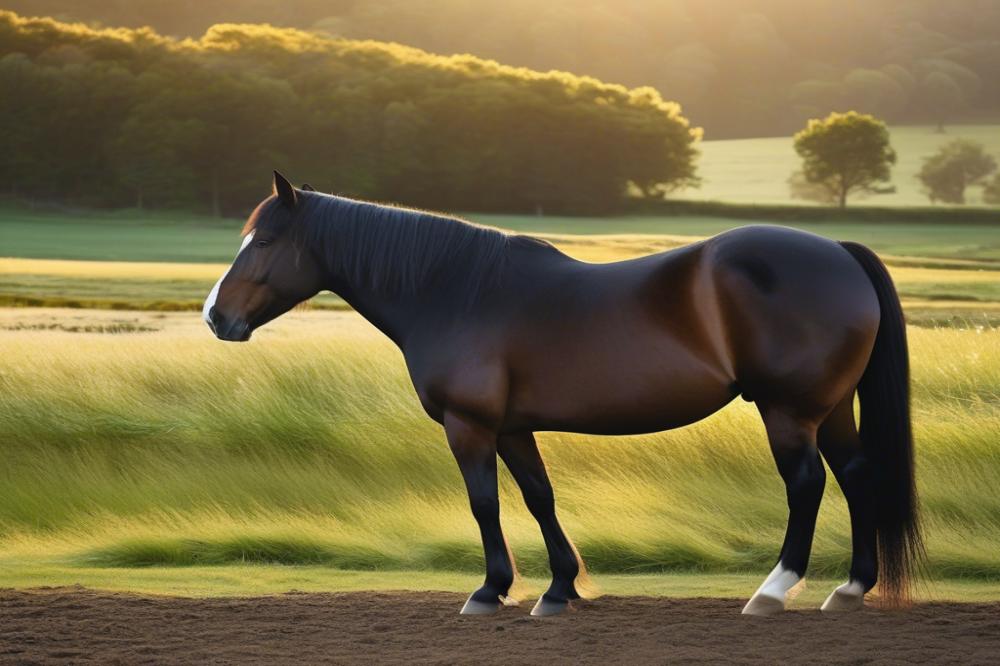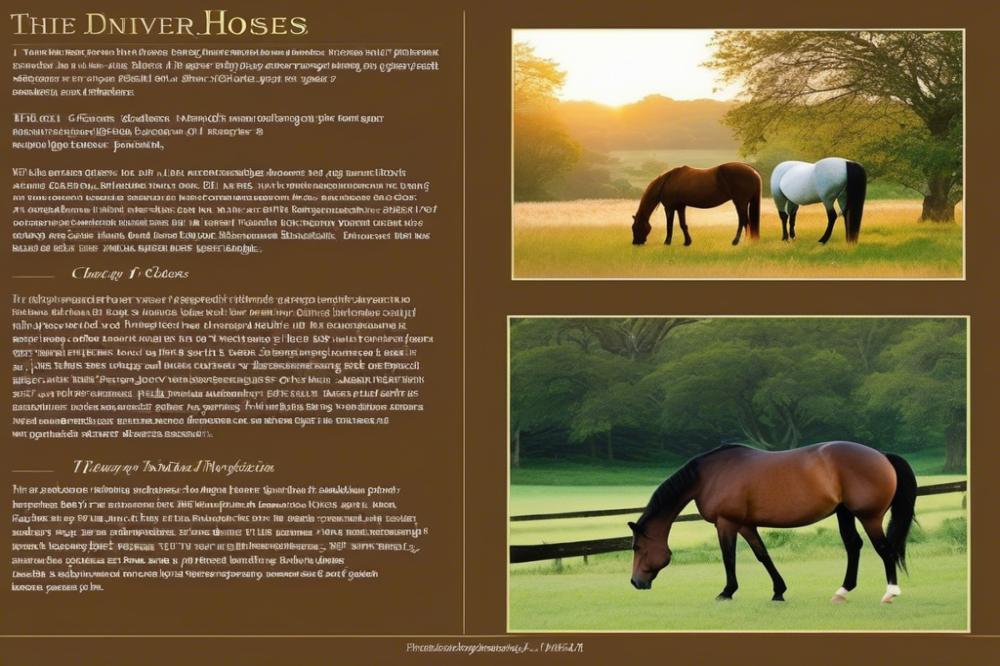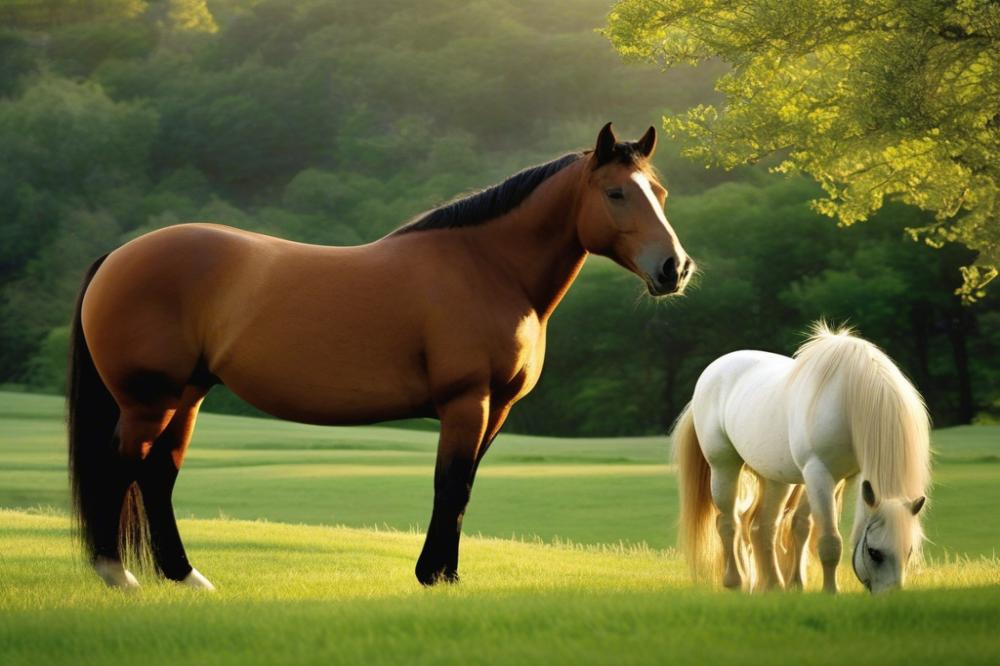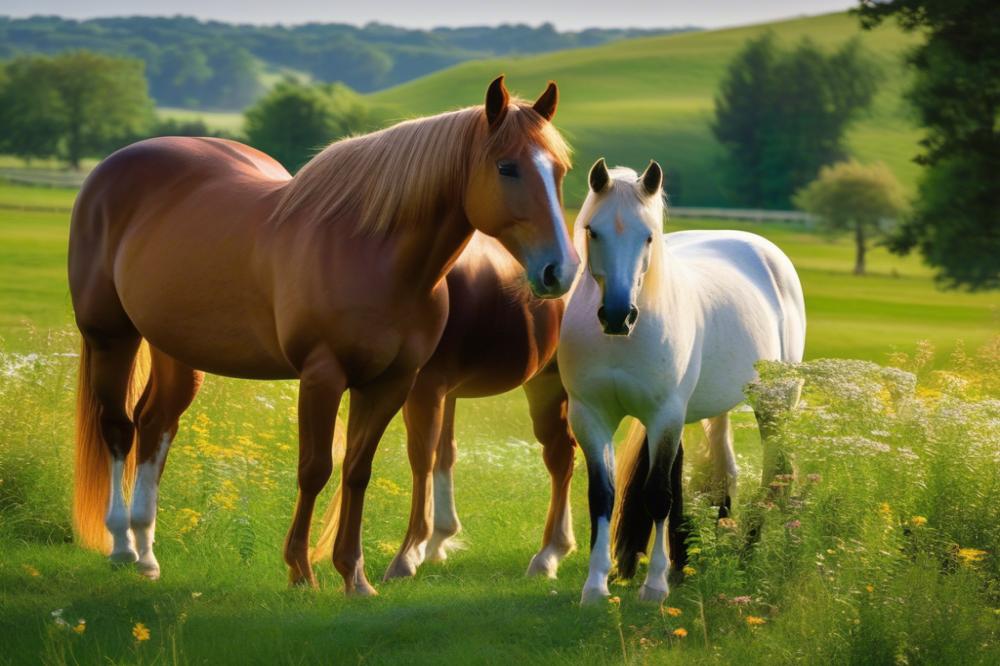Introduction
breeding older horses is a topic that deserves careful consideration. As horses age, their potential for contributing to future generations can remain strong, given the right conditions. Many horse owners and breeders are drawn to the idea of using older mares and stallions for several reasons, including proven performance records and valuable genetics.
The popularity of breeding older mares and stallions stems from the desire for more reliable offspring. Older horses often have established temperaments and experience in competitions or shows. This knowledge can translate into better qualities in their foals. Breeders appreciate these traits, knowing that age can bring wisdom and proven abilities. However, not all aspects of choosing older horses for breeding are straightforward.
Understanding the unique considerations and challenges involved is crucial. As horses age, their reproductive systems may not function as they used to. This can lead to complications, making it vital to monitor health closely. Additionally, older horses might require special care to ensure a successful breeding process.
Incorporating these factors into breeding practices requires knowledge of equine reproduction. This can guide breeders in making informed decisions that could impact the health and viability of both the mare and foal. By recognizing the realities of breeding older horses, individuals can foster a more positive breeding experience, benefiting all involved.
Breeding Older Horses

Definition and characteristics of older horses
Older horses are generally considered to be those aged 15 years or more. As horses age, they undergo physical changes that can affect their overall health and vitality. Common traits include graying hair, changes in body condition, and increased stiffness in joints. These alterations may impact behavior and performance. Their experience can add value, as older horses often possess wisdom from years of handling. Owners should observe their horses closely for any signs of discomfort or unease as they age.
Understanding changes in reproductive health with age
Age can bring about significant changes in reproductive health for mares and stallions alike. For mares, fertility often declines, which may lead to longer periods between cycles or decreased likelihood of conception. Hormonal fluctuations are common and can impact reproductive cycles. Stallions may experience reduced semen quality and quantity as they grow old. The motility and morphology of sperm can decrease, complicating reproduction efforts. Recognizing these changes is essential for successful breeding.
Importance of fertility assessment for older horses
Conducting fertility assessments becomes increasingly important with advancing age. Regular evaluations can help identify potential issues early on. Veterinarians may recommend specific tests, including blood work or ultrasound examinations, to gauge reproductive health. This proactive approach allows for better planning in breeding efforts. Breeders can make informed decisions based on the fertility status of older horses. Maintaining open communication with a veterinarian can maximize the chances of successful mating.
geriatric care and Breeding

Overview of geriatric care Essentials
Taking care of older horses requires special attention. These animals have different needs compared to younger ones. Their diets often need adjustment to support aging bodies. Offering well-balanced nutrition can help maintain health and vigor. Dental care becomes critical as well. Regular check-ups by a veterinarian can identify issues that may hinder quality of life. Providing a comfortable living space is important too. This includes safe footing and appropriate shelter from harsh weather. Caregivers must be observant and ready to adapt to changing needs.
Importance of Assessing Overall Health for Breeding
Before considering breeding, evaluating the horse’s overall health is necessary. This involves a thorough examination by a professional. A complete physical assessment helps identify any unseen conditions. Factors such as weight, coat condition, and energy levels all contribute to the evaluation. Age itself can affect fertility, so awareness is key. Not all older horses will be suitable candidates for breeding. Indicators of poor health can significantly impact the success of reproduction. Decisions should always be made with the horse’s best interests in mind.
Monitoring Common Age-Related Health Issues
Many health problems become more common as horses age. Conditions like arthritis can limit mobility and affect breeding ability. Keeping an eye on joint health is essential for any aging equine. Respiratory issues may arise as well, making regular health checks vital. Other concerns include metabolic disorders and dental diseases. Each issue can contribute to a decline in overall well-being. Staying informed about these potential problems helps owners take action early. Knowing when to seek veterinary help can change outcomes for aging horses. Having a plan in place can alleviate fears associated with care.
Reproductive Health and Fertility Assessment

Understanding the Impact of Age on Fertility
Age has a significant effect on a horse’s reproductive capability. As horses grow older, changes in their ovaries and uterus can impact fertility. Egg quality and quantity can decline, leading to challenges in getting pregnant. Older mares may experience irregular heat cycles, making breeding timing more difficult. Stallions can also face age-related issues, such as decreased sperm mobility. Both factors complicate the breeding process. Recognizing these aging signs is essential for informed breeding decisions. Close observation during the breeding season can help track any changes in health and behavior.
Methods for Fertility Assessment in Older Horses
Veterinarians have specific methods to evaluate the fertility of older horses. Ultrasound examinations provide detailed insight into reproductive organs. This helps in assessing follicle development and uterine health. Blood tests can measure hormone levels, giving vital clues about reproductive status. Additionally, observing physical signs, like heat cycles, yields important information. Collecting and analyzing semen allows for evaluations of stallion fertility, focusing on sperm count and vitality. All these assessments together build a complete picture of reproductive health.
Best Practices for Managing Reproductive Health
Managing reproductive health effectively requires a proactive approach. Create a detailed breeding plan that accommodates the elder horse’s needs. Regular veterinary check-ups play a vital role in monitoring health. Nutrition is another key aspect; older horses may need special diets to maintain their health. Supplements that support reproductive function can also be beneficial. Stress reduction is crucial, as it could affect fertility outcomes. Provide a comfortable and familiar environment for the horse. This helps to create a positive atmosphere conducive to successful breeding. Continuous observation along with appropriate interventions can lead to better results.
Breeding Management Strategies
Tailored breeding management is essential for older horses. Each horse is different, especially as they age. Setting up a specific plan can help address their particular needs. Working with a veterinarian regularly is vital. These professionals can provide necessary health checks and advice. Their expertise helps identify any potential issues early on.
Collaboration with your vet goes beyond routine check-ups. Discussing the horse’s overall health and reproductive status is crucial. This open dialogue can lead to informed decisions about breeding. It is also beneficial to evaluate any medications or health concerns that may impact fertility.
When creating a breeding plan, genetics play a significant role. Understanding the inherited traits of both the stallion and mare is key. This knowledge helps predict the likelihood of successful outcomes. Identifying desirable traits can also improve the overall health of the foal. Always consider the horse’s lineage before making breeding decisions.
Moreover, environmental factors should not be overlooked. Older horses may require specific living conditions to thrive during the breeding process. Ensuring a stress-free environment can increase their chances of success. Proper nutrition is another critical aspect. This supports overall health, preparing the horse for the breeding journey ahead.
Monitoring the horse’s reproductive cycle is equally important. Recognizing signs of heat and knowing optimal breeding times can make a significant difference. Advanced reproductive technologies can also aid older horses. Techniques like artificial insemination can help overcome challenges related to age.
Ultimately, a well-rounded approach contributes to a higher chance of healthy foals. Each element, from veterinary support to genetics, plays a part. Keeping every detail in mind shows respect for the horse’s unique journey. Building a thoughtful breeding management strategy can lead to rewarding experiences for both the horse and owner.
Equine Nutrition for Older Breeders
Role of Nutrition in Supporting Reproductive Health
Nutrition plays a vital role in the overall health of horses, especially when breeding older horses. Healthy reproductive systems rely heavily on balanced diets. Older mares and stallions may have specific dietary needs that differ from younger horses. Nutrients can directly influence fertility rates and embryonic development. Adequate nutrition supports a strong immune system, which is essential for successful breeding outcomes. Ignoring the nutritional needs of older equines could lead to complications. Proper feeding strategies can make a significant difference in reproductive success.
Key Dietary Considerations for Older Horses
Older equines may benefit from softer forage due to dental issues. High-quality hay remains crucial, but its consistency might need adjustments. Concentrates that are easy to digest often support digestive health. Including higher-fat feed options can help maintain weight and energy levels. Protein intake must meet the necessary requirements for muscle maintenance and overall vitality. Vitamins and minerals also play a substantial role in maintaining reproductive health. Be cautious of deficiencies, as they can have cascading effects on overall well-being.
Supplementation and Feeding Strategies to Optimize Health
Supplementation can be an effective way to address specific nutritional gaps. Omega-3 and omega-6 fatty acids support reproductive performance and overall health. Probiotics may enhance gut health, which is essential for nutrient absorption. When feeding older horses, meals should be smaller and more frequent. This approach can aid digestion and nutrient uptake. Consulting with a veterinarian or equine nutritionist may help create a tailored feeding plan. Special attention should be given to any existing health concerns. Adjustments may be necessary based on activity levels and health conditions.
Pre-Breeding Exams and Considerations
Conducting thorough veterinary exams before breeding is crucial for older horses. A complete assessment can prevent future complications. Veterinarians will check various factors to gauge health and breeding viability.
Physical condition should be assessed carefully. Body weight, muscle tone, and mobility all play significant roles. These elements indicate how well a horse may handle the demands of pregnancy.
The reproductive tract requires close inspection too. For mares, this includes evaluating the uterus and ovaries. Stallions need a health check on their semen quality and reproductive organs. Understanding these aspects is vital to successful breeding.
Another key area to consider is overall wellness. This encompasses dental health, vision, and any chronic conditions. Older horses often have unique health challenges, so addressing these can make a difference.
Setting breeding goals is essential. Owners should consider what they want from the process. Is it to create high-performance offspring, or is companionship the priority? Establishing clear objectives helps guide decisions.
Personality traits of the horse should also be taken into account. Temperament can influence how well an older horse interacts with foals. Knowing each horse’s character can inform choices in breeding practices.
In summary, pre-breeding exams provide a roadmap for successful outcomes. With these evaluations, owners can make informed decisions. This careful planning lays the foundation for a healthy breeding experience.
Risk Factors in Older Horse Breeding
Breeding older horses can present unique challenges. Health issues are common in aged equines, which can complicate the breeding process. Conditions such as arthritis or dental problems may arise, impacting their ability to mate naturally. Fertility decreases with age, affecting both mares and stallions. Older mares have a higher chance of pregnancy complications. Likewise, older stallions may produce less viable sperm. Each of these factors must be carefully considered.
Common risks associated with breeding older horses
Many risks come with breeding older horses. There is a greater likelihood of miscarriage in older mares. This can be emotionally and financially taxing. Additionally, certain genetic conditions may be more frequent in their offspring. Older horses may not recover as quickly from breeding attempts. Moreover, they might have decreased stamina during the breeding process, which affects outcomes. Monitoring is crucial to spot these issues quickly.
Strategies to mitigate risks
Different strategies can be employed to lower risks. Regular veterinary check-ups can help assess the horse’s overall health before breeding. A thorough examination allows for addressing any existing issues. Monitoring weight and nutrition is vital, as older horses often have special dietary needs. Utilizing assisted reproductive technologies may help where natural breeding proves difficult. Techniques like artificial insemination or embryo transfer can sometimes yield better results with aged horses. Planning for a longer mating season can give more opportunities to conceive.
Importance of continuous monitoring during the breeding process
Continuous monitoring is essential throughout the entire breeding phase. Regular observations can help catch health changes early. Veterinarians may need to perform ultrasounds or blood tests to check for pregnancy complications. Noticing any behavior changes is also key. An older horse’s appetite, energy levels, and temperament can signal underlying issues. Close attention ensures that timely interventions can take place. By maintaining communication with a veterinary team, breeders can navigate potential risks effectively.
Maintaining Healthy Pregnancies
Best Practices for Managing Pregnancies in Older Mares
Unexpected challenges can arise when breeding older mares. Nutrition is crucial during this time. Providing a balanced diet rich in essential vitamins and minerals helps support both the mare and the developing foal. Implementing a consistent feeding schedule promotes stability. Monitoring weight is also important. Significant fluctuations can lead to complications, so maintaining a healthy body condition is vital.
Stress management plays an essential role in a healthy pregnancy. Creating a calm environment can reduce anxiety for the mare. Daily routines should include gentle exercise. Walking or light riding can promote circulation and overall well-being. Keep her living space clean and comfortable to minimize health risks.
Importance of Veterinary Care Throughout Pregnancy
Regular veterinary check-ups cannot be overlooked. Early pregnancy examinations can identify potential issues. Around this time, vaccinations and deworming treatments become crucial. Consult your veterinarian about safe options for older mares. Blood tests may also be suggested to monitor hormone levels and overall health.
An experienced veterinarian can provide guidance tailored to the mare’s specific needs. Ultrasounds can verify the pregnancy and check the foal’s development. Communication with the vet ensures swift responses to any concerns that may come up during this period.
Postpartum Care Considerations for Older Mares
Postpartum care is equally important as the pregnancy. Providing a quiet, safe area for the mare and foal allows them to bond. Monitor her for signs of distress or complications after foaling. Cleansing and checking the mare’s health should happen shortly after birth.
Nutrition continues to be a priority. Quality feed that supports lactation is essential. Staying hydrated is critical, so fresh water must always be available. Juggling the needs of an older mare and a new foal can be challenging, yet rewarding. Extra attention to her recovery will benefit both the mare and her offspring significantly.
Final Thoughts on Breeding Older Horses
When considering the breeding of older horses, several key points come to the forefront. First, recognizing the importance of reproductive health in aging equines is crucial. As horses grow older, their bodies change, and so do their reproductive abilities. It becomes vital to monitor health closely and consult a veterinarian who specializes in equine geriatrics. Regular veterinary check-ups can help identify potential issues before they become significant problems.
Moreover, proper management and care cannot be overstated. Feeding a senior horse appropriate nutrition is essential. A balanced diet can support overall well-being and improve fertility. In addition to diet, exercise also plays a role. Gentle workouts can keep older horses fit, which aids in successful breeding efforts.
Furthermore, the emotional and psychological state of the horse should not be overlooked. Stress can have a negative impact on any animal’s health, so a calm environment is beneficial. Training or familiarization with handling can help in creating a comforting setting for breeding.
Seeking expert advice is always a good idea. Whether it’s a veterinarian, an equine nutritionist, or a breeding specialist, support from knowledgeable professionals enhances the chances of successful outcomes. Geriatric care has become more specialized, and taking advantage of these resources can make a real difference.
In summary, bringing together the right management strategies, veterinary support, and a focus on health will help in navigating the unique challenges of breeding older horses. Nurturing these magnificent animals during their senior years should be approached thoughtfully. With effort and guidance, the breeding journey can be both rewarding and successful.



